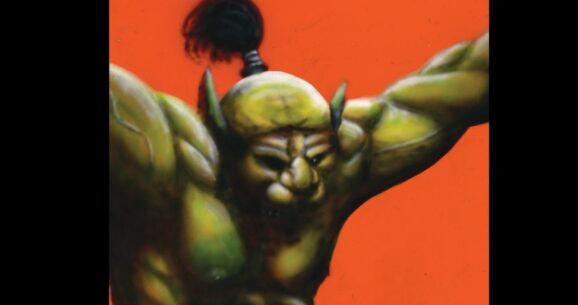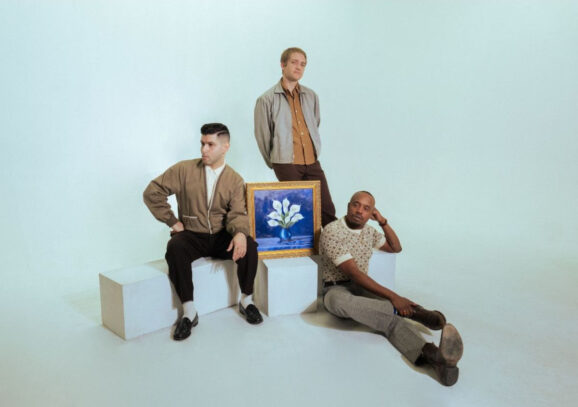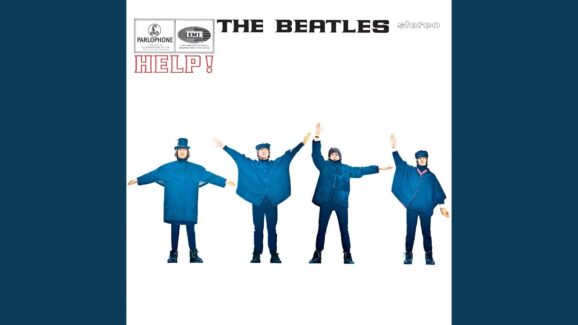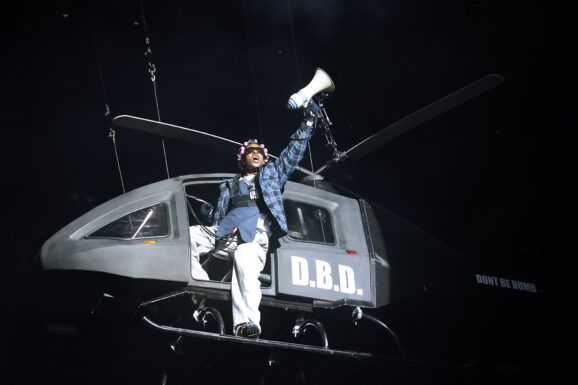In its sustained ebb and flow through a stream-of-consciousness song cycle, there is nothing quite like Astral Weeks (released 11/29/68) in Van Morrison’s entire discography. In the previous work of the native Irish band Them, only “Mystic Eyes” and the engrossing rendition of Bob Dylan’s “It’s All Over Now, Baby Blue” hint at the deceptively improvisational, poetic style of this now fifty-five-year-old album.
In the efforts following this Warner Bros debut, there are only passing moments when Morrison ‘gets into it like a meditation’ (his own description of that trance-like state in song as recounted from A Period of Transition‘s “Checkin’ It Out”). After the concession to conventionalism that is Moodance, Van would usually only let himself go in concert, as captured on the double live set of 1974, It’s Too Late to Stop Now.
There are, however, similar moments on Tupelo Honey and St. Dominic’s Preview. The former’s title song plus “You’re My Woman” and the latter’s self-referential “Listen to the Lion” and “Almost Independence Day” are exceptions to a rule of tight structure; at their best, however, the disciplined likes of “Wild Night” and “Jackie Wilson Said (I’m In Heaven When You Smile),” are just as absorbing (and more naturally infectious) in their own way.
At the time of its original release over a half-century ago, Astral Weeks confounded audiences as well as Morrison’s new record label (an affiliation subsequent to the debacle on Bang Records). A far cry from the archetypal pop of “Brown Eyed Girl,” but otherwise, no easy labels or genre categorizations apply to this dream sequence of eight original songs rooted in folk, jazz, and blues.
It’s a turbulent mix of emotional undercurrents roiling virtually uninterrupted from the very beginning of the title tune that commences ‘Part One: In The Beginning.’ As cutting as it is cajoling, Van posits his voice as the lead instrument right from its an assignation of no small significance considering the small ensemble of accompanists includes the Modern Jazz Quartet’s drummer Connie Kay.
But John Payne makes his own spontaneous connection to the music felt as well (he had been playing live dates with Morrison prior to this). A veteran of the Boston music scene into which Van The Man immersed himself earlier in the year utilized his saxophone and flute playing to alternately complement and offset the restrained string arrangements of Brooks Arthur (who performed similar duties for Janis Ian on her Grammy-winning ’75 debut Between the Lines).
Meanwhile, Jay Berliner uses classical guitar to engage in an insistent back-and-forth with bassist Richard Davis. With the former’s precise picking as gentle as Warren Smith’s brushes on the vibes, the frontman’s use of repetition in his vocal only adds to the enchanting effect on “Beside You”
The light, airy chording at the heart of the arrangement of “Sweet Thing” bespeaks Morrison’s self-imposed vow to ‘never grow so old again.” Long-buried reminiscences appear in the form of “Cypress Avenue,” that very point where the free-flowing continuity of Astral Weeks’ forty-seven minutes crystallizes; this seemingly inevitable progression belies the legal and contractual entanglements that preceded the recording sessions.
The subsequent productivity of Lewis Merenstein’s studio supervision becomes even more clear with the nearly thirty minutes of bonus cuts included on the 2015 expanded reissue of Astral Weeks. Each of the four outtakes on this single CD package–two of which are designated ‘long versions–generates an atmosphere almost as evocative as those included on the LP as originally issued.
“The Way Young Lovers Do” also points the way to Morrison’s prominent use of horns later in his career (most expertly and authentically in 1970’s His Band And The Street Choir). As the commencement of what’s designated on the track sequencing as ‘Part Two-Afterwards,’ the cut offers a refreshingly familiar sound in contrast to the baroque mood of “Madame George,” a cut all the more arresting for Morrison’s deep immersion the moment as he performs.
Astral Weeks remains wholly and completely cerebral to that point. “Ballerina,” on the other hand, radiates an earthy sensuality so prevalent it ratchets up the intensity of the album to another level altogether. As riveting as Van can sound lost in himself, it’s nothing compared to his state of mind and body when enraptured by an object of fascination, especially the subject of his affections.
Yet this penultimate cut is less a character portrait or demonstration of introspection than a life lesson from a man who’s struggled on and off with creative, personal and business challenges for much of his seventy-eight years. His 1996 designation to the Order of the British Empire belies such tumult, but proffers validation of his efforts.
On the many albums to follow in the wake of Astral Weeks –even the one from a decade later in so polished a form as the concession to commerciality that is Wavelength--the Van Morrison discography now containing forty-five studio albums is a testament to prolific output over the years. But that very lengthy litany of albums may be the source of the undeniably erratic quality of the man’s output.
Genre exercises such as 2006’s homage to country music, Pay The Devil, precede more fruitful collaborations like the pair with jazzman Joey De Francesco. And those are interwoven with illustrations of Van Morrison’s own inimitable style such as 1997’s The Healing Game (the 3 CD deluxe edition of which is further evidence of his magnificent idiosyncrasy).
In the end, much like those other two great iconoclasts, Bob Dylan and Neil Young, the Belfast Cowboy (wilfully?) resists simplistic categorization. And that very mercurial image is exactly that which renders Astral Weeks such a singular entry in his oeuvre.









One Response
“checkin it out” is from Wavelength